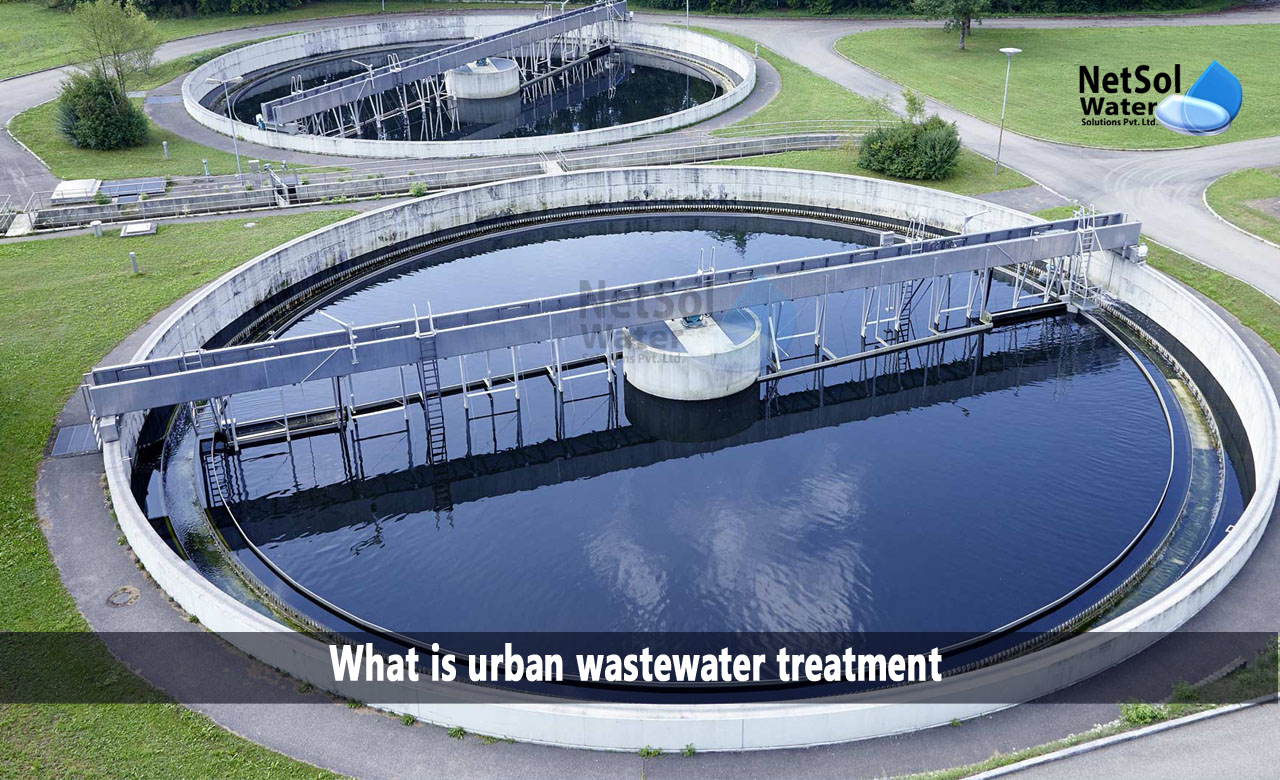What is urban wastewater treatment?
Blackwater, which is contaminated with urine and feces, unclean water from food preparation, washing, and restrooms, as well as runoff water, all contribute to the composition of urban wastewater.
The characterization of raw and treated wastewater from an analytical and regulatory perspective, uses global characteristics expressed in mg/l which contain a number of contaminants.
Let’s understand the concept of urban wastewater treatment.
To retain suspended sediments and the generated biomass, urban wastewater treatment is primarily done biologically in conjunction with liquid/solid separation procedures (settling, filtering, flotation). The majority of the purifying biomass is made up of bacteria (primary producers), which have the ability to secrete exopolymers that allow the creation of biofilms, or settable flocs in which other microorganisms (protozoa, metazoans, etc.) can grow and play a predatory role.
For each type of reaction, particular implementation conditions are needed in order to achieve the biological removal of organic, nitrogen, and phosphorus pollutants (presence or absence of dissolved oxygen, residence time of biomass in reactors, etc.).
Stages of urban wastewater treatment
Step 1: Sewer
Step 2: Grit Chamber
Step 3: Primary Treatment
Step 4: Aeration Tanks
Step 5: Secondary Treatment Tank
Step 6: Tertiary Treatment Tank
Preliminary, primary, secondary, and tertiary treatments are the four steps that make up the ideal wastewater treatment process, in a municipal treatment facility. The two final by-products of the treatment process are liquid effluent and sludge solids.
The effluent is lessened during the treatment process so that it won't compromise, the quality of the receiving waters.
Let’s discuss the urban wastewater treatment process in details:
1: Large solids and floating debris are removed from the raw wastewater during preliminary treatment.
2: The smaller solids are separated during primary treatment.
3: Microorganisms are used in secondary treatment to get rid of organic or biodegradable waste.
4: Nutrient removal and filtering are included in tertiary treatment.
Importance of treating urban wastewater
Although, surface water naturally occurring microorganisms can break down pollutants introduced by wastewater discharges, rivers rarely have enough capacity to self-purify. Hence, before being released into the environment, wastewater must be treated at wastewater treatment facilities.
Regulations specify the minimum purification efficiency to be attained, or the maximum concentration values not to be exceeded in treated wastewater, for the main global pollution parameters.
Impact of discharge of urban wastewater into aquatic environment
1: Untreated urban wastewater discharge into surface waters results in siltation of lakes and rivers, reduced water transparency, and visual pollution (floating debris).
2: Discharge of biodegradable materials encourages biological activity in watercourses, which lowers the quantity of dissolved oxygen and may even cause the watercourses to suffocate. Eutrophication phenomena are facilitated by discharges of nitrogen and phosphate.
3: The flora and fauna of aquatic settings may become poisonous as a result of the emission of micropollutants. These side effects include chronic toxicity at extremely low dosages, bioaccumulation of persistent chemicals in the food chain, and alterations in the way the endocrine system functions, which might, for instance, cause the feminization of male fish.
4: Water quality can be compromised by microbial water contamination, making it inappropriate for some uses.
Conclusion
Access to clean water is a critical issue for many cities, particularly in developing nations, due to the growth in the global population and the urbanization of society.
Sanitation is the collective term for all processes used to collect, move, and treat wastewater before releasing it into the environment. Wastewater treatment plants transform wastewater in order to reuse treated wastewater and produce green energy, fertilizing materials, and valuable metals.
How can we assist?
Water treatment, wastewater treatment, sewage treatment, effluent treatment, along with the physical, chemical, and biological treatment processes, are provided by Netsol Water.
Netsol combines cutting-edge technology with years of experience to handle the most challenging, water treatment or wastewater treatment requirements of a wide range of clients. For further information, contact us at +91 9650608473 or email at enquiry@netsolwater.com



